
What do you expect from a pipe called a “Strawberries and Cream Blowfish”? Probably a very interesting, and possibly deadly, dinner experience, for one thing. However, despite the interesting images conjured up by such a moniker, the title is a perfect descriptor for one of Chris Askwith’s most recent creations.
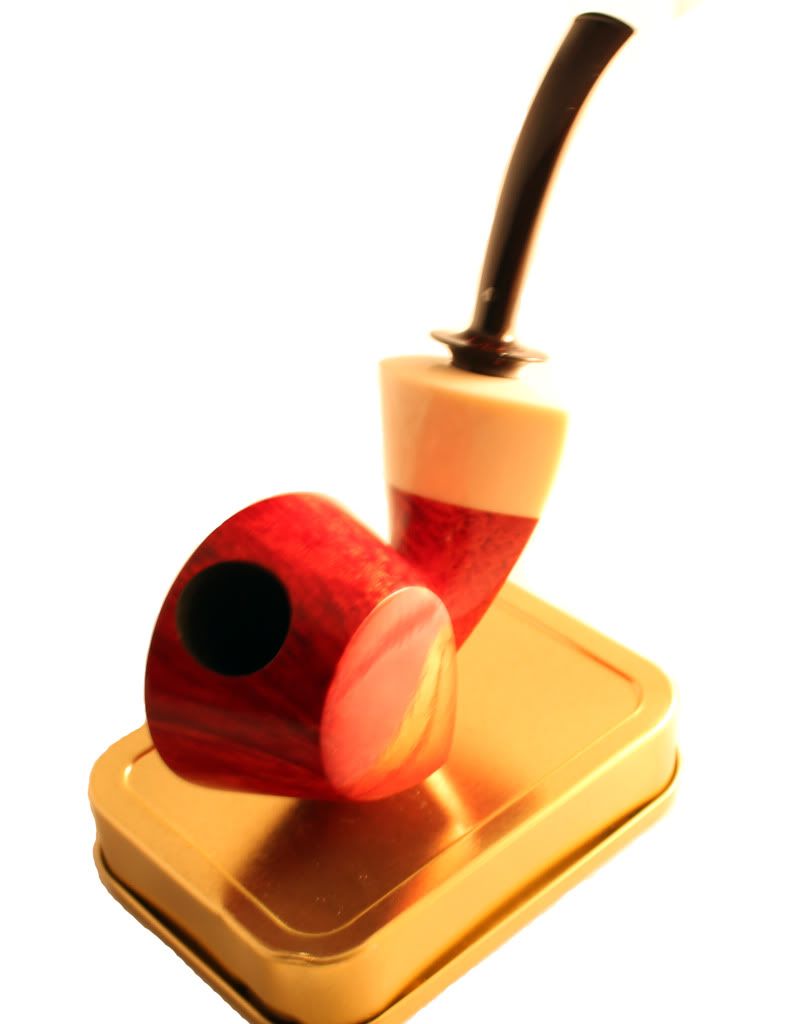
The Blowfish is also one of the many shapes that was brought into existence from the Danish revolution of pipe making, from names like Sixten, Lars, and Nanna Ivarsson and Jess Chonowitsch. It is always fascinating to find a shape that can capture a liminal moment in the history of pipes.
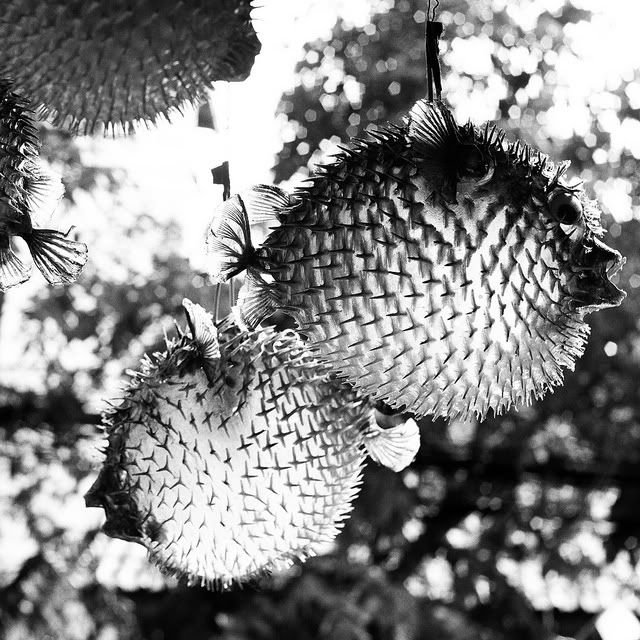 Perhaps what I love most about the Blowfish from a scholarly perspective is that it is an extremely difficult shape to pull off well. A lot of carvers less familiar with the shape will simple hack off one side of an apple or tomato pipe and call it a day. That’s not enough, though, as anyone who has seen one of these ugly ducklings can attest. These attempts are important in their own right, as they are testimonies to the skill required to make this shape.
Perhaps what I love most about the Blowfish from a scholarly perspective is that it is an extremely difficult shape to pull off well. A lot of carvers less familiar with the shape will simple hack off one side of an apple or tomato pipe and call it a day. That’s not enough, though, as anyone who has seen one of these ugly ducklings can attest. These attempts are important in their own right, as they are testimonies to the skill required to make this shape.
The unfortunate part for me, as someone who has never attempted to make a pipe and probably would end up cutting off at least one limb in the process, is that I have difficulty describing exactly what makes a successful Blowfish. One day, I hope to have a better grasp of what the exact aspects are – and when I do, expect another post! For now, I have no choice but to fall back on the phrase je ne sais quoi to describe it, or maybe the United States Supreme Court Justice’s definition of pornography: I’ll know it when I see it.
When I pulled up Chris Askwith’s website about a month ago, I saw it and I knew it.
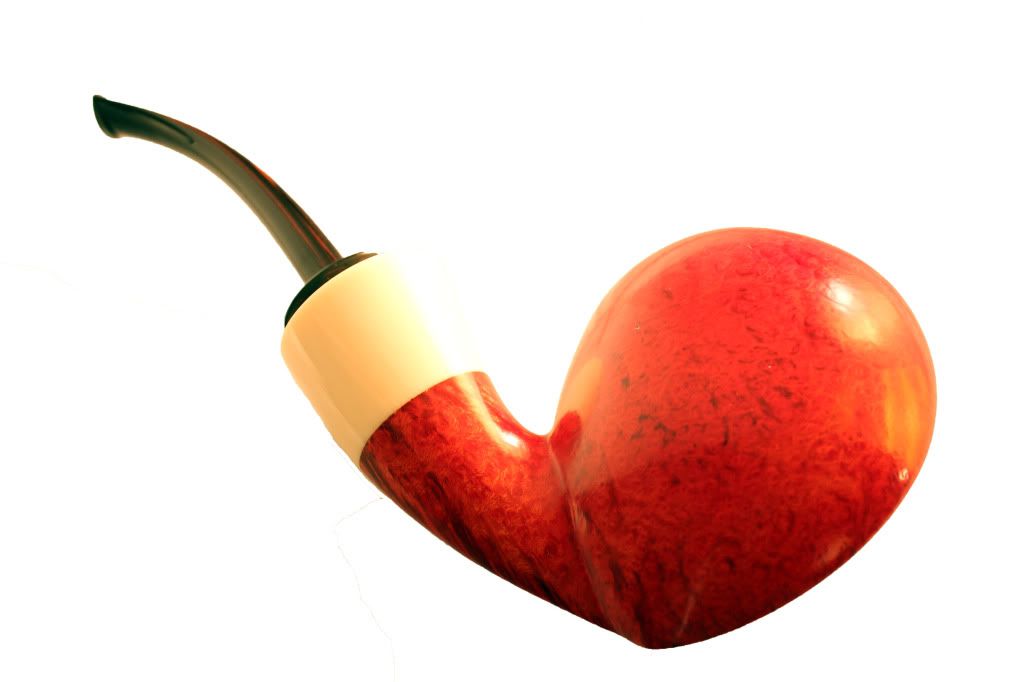 I had only just started to put my interest in the Blowfish shape into action, and with Valentine’s Day just around the corner, a red-and-white pipe was too good to pass up. Additionally, my lady informed me that she had not gotten me a Valentine’s Day present, so I considered this my present to myself – sometimes things do work out.
I had only just started to put my interest in the Blowfish shape into action, and with Valentine’s Day just around the corner, a red-and-white pipe was too good to pass up. Additionally, my lady informed me that she had not gotten me a Valentine’s Day present, so I considered this my present to myself – sometimes things do work out.
When I ordered this pipe, I had no idea how huge the pipe was. It is hands down one of the biggest Blowfish pipes I own and easily the largest Askwith pipe I have had the chance to enjoy.
It is comfortable in the hand, the colors work beautifully together, and it is balanced – as much as a shape that is intentionally lopsided can be.
For those of you who don’t know Chris, he is a young pipe artisan out of England who has made quite a splash lately. One of his designs that he is well-known for is he “weathered-bone finish”, which is a pale, unvarnished exterior that allows the briar to naturally color like Meerschaum.
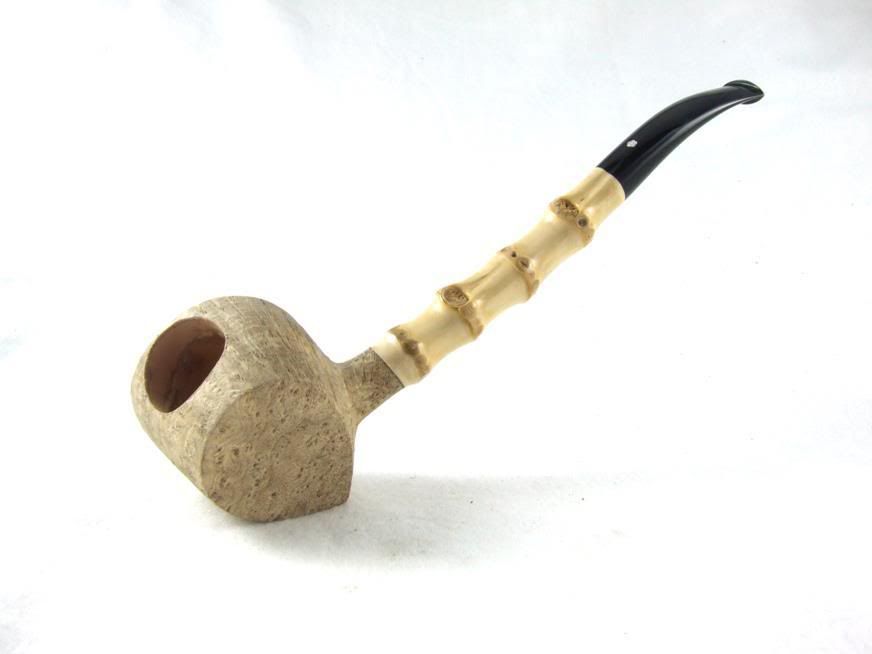
Chris is an amiable guy who loves to crack jokes. For example, when I was discussing a commission with him, he offered to make me a pipe with a hot-pink, glittery stem…at least, I hope he was joking.

The different colors of his stems is something else that sets Chris Askwith apart from other carvers. The vast majority of artisans use almost exclusively black stem materials, perhaps being so adventurous every now and then to make a pipe with an amber stem.
Chris, however, is constantly trying out new color combinations between pipe material and stem: pink, teal, red, tye-dye, and yellow are quite common in Chris’s creations, with bright yellow being the most frequently used unorthodox color. One morta pipe that I have from Chris is equipped with a yellow stem, a color combination that I had never thought of before, but is unusually beautiful, emphasizing both the black of the morta and the vibrancy of the stem.
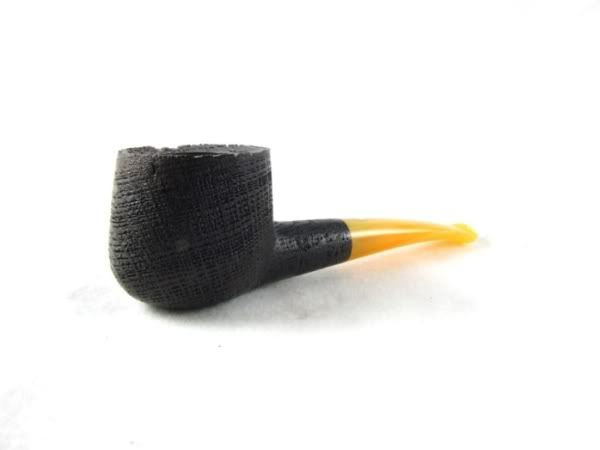
While Mr. Askwith’s career is still in its infancy in comparison to some other artisans, his creativity, personality, and innate talent give me great reason to expect his name that the pipe-world will continue to hear for years to come.
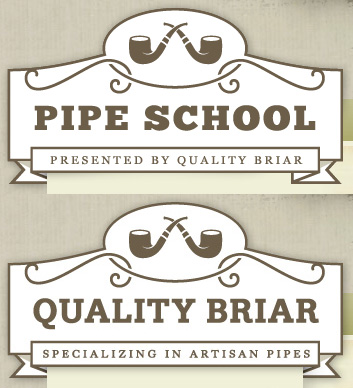

 Subscribe to RSS feed
Subscribe to RSS feed
What are the odds? I just happened to be smoking one of Chris’ wonderful pipes when I opened this page! You’ve got a really fine one there. By the way, I own 3 Ardors with hot pink stems and I can drink beer and belch with the best of ‘em……..
I believe you! Though, I would love to see a photo of you drinking a strong beer with a hot pink pipe. That would make my day!